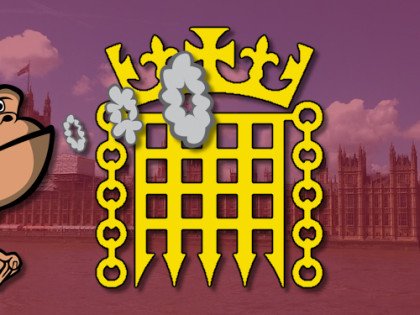In 2016, Simon Chapman told an RACP conference that although smoking cessation had stalled in Australia, the organisation should continue to oppose vaping. It went on to advise the New Zealand government later that year: “The potential for e-cigarettes to continue supporting people’s addiction, or indeed create a new generation of people addicted to nicotine and smoking behaviour, needs to be considered. The devastating impact addiction has on people’s life choices, life opportunities and life chances is too often overlooked and underestimated.”
Rather than focus on the harm reduction aspect of vaping, which even back then was pretty clear, the RACP fixated on potential danger: “caution is advised as we do not know whether the large number and wide-ranging additives in e-cigarettes, such as flavourings, colourants and other chemicals (including carbonyls, metals and organic volatile compounds) are safe when heated and vaporised and repeatedly inhaled deep into the lungs.” [link]
The Australian Tobacco Harm Reduction Association (ATHRA) commented: “Why are Australian physicians so opposed to vaping?” [link]
Associate Professor Colin Mendelsohn said the RACP had failed Australian smokers: “Millions of smokers have quit overseas by switching to vaping. Smoking rates in many countries which allow vaping have tumbled, while stalling in Australia. These lifesaving products should also be available to Australian smokers. The RACP's main concerns are that vaping will renormalize smoking and act as a gateway to smoking for young people. However, the UK review found that these concerns have not eventuated.”
Finally, like an oil tanker changing course, the RACP has begun the shift to align itself with more open-minded medical organisations.
The move was welcomed by ATHRA: “The Royal Australasian College of Physicians is to be commended for updating its previously cautious policy to reflect the growing evidence that vaping is an effective quitting aid and is far safer than smoking.”
“The policy shift was announced last week in the New Zealand Parliamentary inquiry into vaping by Professor Chris Bullen who led the world’s first randomised controlled trial on vaping and is chairman of the committee that developed the RACP position statement on vaping in 2018.”
Professor Bullen told the Health Select Committee: “Our position has moved since more evidence has become available about electronic cigarettes.”
“The evidence for vaping is growing. I led the world’s first RCT on ecigs, comparing them to patches in 2013. In those days, the ecigs we tested were pretty bad. The battery life was terrible, they looked like a slightly larger version than a cigarette. Since then they have evolved very rapidly. They are a class of products that is constantly changing and innovating, and perhaps that is one of the successes of these products that they respond to consumer need and changing technology.”
There again, few people used the poor quality cigalikes in 2013, the vast majority of vapers were using mechanical mods with mesh or material wicked atomisers.
But Bullen is to be applauded for getting the RACP to accept: “They are not safe products but by all accounts they are safer about smoking. I don’t think there is any question about that. Our position is that they have a place and that they are for people who want to quit smoking, and we should encourage them, particularly for population groups where current strategies have not been helpful in bring smoking rates down.”
The official submission to the government is less positive, still holding on to a number of debunked objections – and as the RACP straddles the differing approaches of Australia and New Zealand, its recent public position statement [link] still leaves much room for improvement.
The Twitter account of The Global State of Tobacco Harm Reduction said: “Encouraging signs that tobacco harm reduction is becoming more accepted by the medical profession in Australia as the Royal Australasian College of Physicians confirms it now believes vaping/ecigarettes have potential as tools in smoking cessation.”
Related:
- Transcript of RACP oral submission to Health Select Committee, NZ Parliament – [link]
- The RACP submission to the Health Select Committee – [link]
Dave Cross
Journalist at POTVDave is a freelance writer; with articles on music, motorbikes, football, pop-science, vaping and tobacco harm reduction in Sounds, Melody Maker, UBG, AWoL, Bike, When Saturday Comes, Vape News Magazine, and syndicated across the Johnston Press group. He was published in an anthology of “Greatest Football Writing”, but still believes this was a mistake. Dave contributes sketches to comedy shows and used to co-host a radio sketch show. He’s worked with numerous start-ups to develop content for their websites.
Join the discussion
Parliament Fears Two
The Department for Environment, Food and Rural Affairs faced questions from a Conservative MP and, oddly, a member of the Department for Environment, Food and Rural Affairs
Harm Reduction For The Rich
The United Kingdom risks becoming a harm reduction country only for the wealthy, according to Michael Landl of the World Vapers’ Alliance
Scotland Announces Single-Use Vape Action
A ban on the sale and supply of single-use vapes in Scotland is due to come into effect on 1 April 2025, under proposed legislation published today
Parliament
Andrea Leadsom has been quizzed by Rupa Huq and Derek Thomas about the promotion of vaping and support to those who want to quit







-listing400.jpg)



